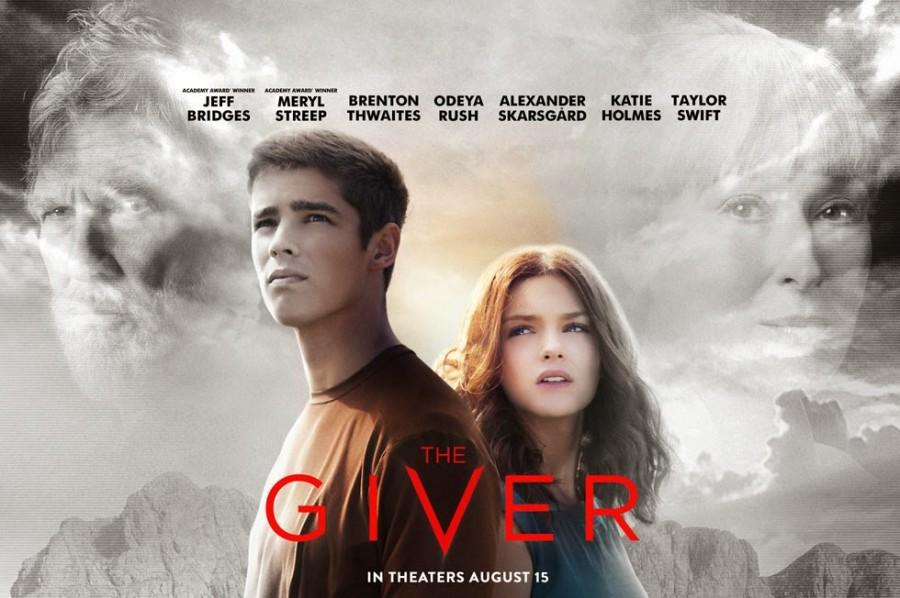“The Giver” echoes other dystopian society films– leaves a familiar, unsatisfied feeling
Book: 8.5/10 Movie: 6/10
When Lois Lowry first released the American children’s novel, The Giver, in 1993, he probably wasn’t expecting the mere 192 page book to sell over 10 million copies. He also probably wasn’t expecting the recent movie adaption of the novel to finish 5th place at the box office its opening weekend and gross over $12.3 million. Yet this social science-fiction novel did all.
Set in the year 2048, Lowry describes a utopian society, filled with “communities” in which each human has no emotion, no differences and sees the world in black and white. The main character, Jonas, is followed through his twelfth year of life, where he is assigned to become the Receiver of Memory and learn all the things about the past that the communities are unaware of.
The burden of pain from past events becomes hard for Jonas to ignore. The utopia he had grown up in begins to appear like an ignorant dystopian society with each memory he receives. The citizens are oblivious to war, pain, starvation and death – but also to the joys in life: love, music and color. The past Receiver of Memory, who calls himself The Giver, decides with Jonas that it’s time for change in the community.
The book itself is thought-provoking and interesting, although it takes a while for the plot to develop. Because the beginning is slower paced, it is slightly difficult to get in to and may leave you feeling like the story ended too suddenly. Since the fate of Jonas and others is left undecided on the last page, readers must infer what happens. However, Lois Lowry has three other novels in this quartet that are set in the same period and tell the story of Jonas and the communities.
The movie adaption, however, disregards the fact that Jonas is a naïve eleven year old at the beginning of the novel. Brenton Thwaites, the 25 year old Australian actor, was cast to play a much older Jonas. Although the movie does not specify how old the characters are, the love interests they added might indicate them being closer to 17.
Like any other blockbuster film, they had to make the main character fall in love. To be completely honest, the blooming relationship between Jonas and long-time friend Fiona felt awkward and dull. Even though they were on the emotion-less injection medicine, passion would’ve probably helped the movie out.
The idea of young adults struggling in a future society seems way too overused at the moment, with the adaption of The Hunger Games, Divergent and The Maze Runner. Perhaps if the movie had come to life years before the dystopian-society craze, I would’ve loved it.
Unfortunately, Meryl Streep’s acting won’t win her an Oscar for this one, and Taylor Swift’s uncomfortable addition felt less like a convincing role among these unknown actors and more like a ploy for ratings.
The film version just isn’t comparable to the standards that the book has held. I wish they would tear the screenplay down and start over. But I won’t be surprised if a sequel pops up within the next few years. Perhaps the next movie will focus more on convincing acting and emotion, and less on ratings. However, the notably inspiring parts are still worth seeing, that is, if you can bare the awkwardness.
Your donation will support the student journalists of Omaha Central High School. Your contribution will allow us to purchase equipment and cover our annual website hosting costs.













